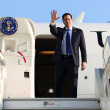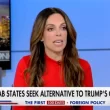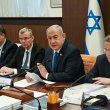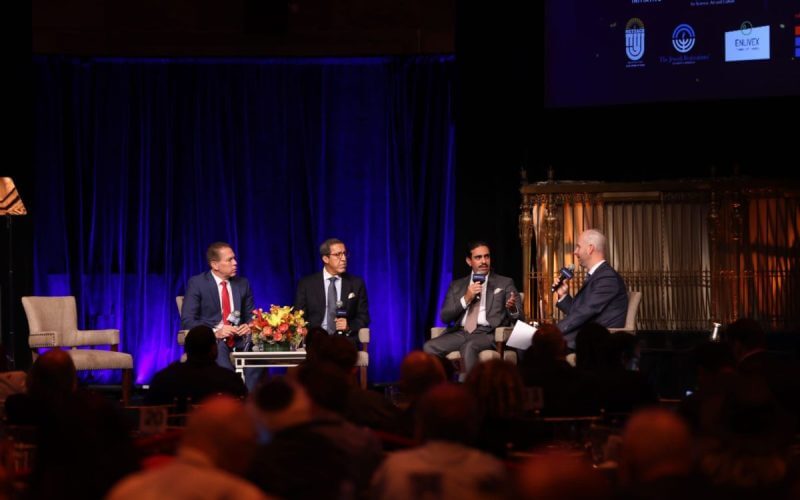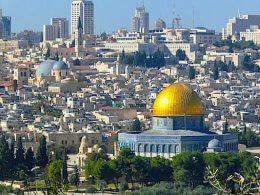By Joel C. Rosenberg | September 14, 2022
On Sept. 11, 2020, the king of Bahrain announced that his nation was making peace and normalizing relations with the State of Israel.
Actually, Bahrainis prefer to use the word “formalization” rather than “normalization” because they maintain that Bahrain was never at war with Israel and had long been creating diplomatic and intelligence ties to the Jewish state, albeit quietly.
But two years after signing the Abraham Accords on the White House lawn – agreements brokered by U.S. President Donald Trump and White House advisor Jared Kushner – a senior Bahraini official says the kingdom wants more than diplomatic ties, economic cooperation and joint tourism.
Bahrain urgently wants to work closely with Israel and the U.S. to build a multi-tiered missile defense system to defend the kingdom – and their regional Arab allies – against the threat posed by an increasingly hostile and aggressive Iranian regime.
The ambassador made his headline-grabbing remarks at a day-long conference marking the 90th anniversary of The Jerusalem Post.
I was honored to help the Post invite and organize the panel discussion, that also included Gilad Erdan, Israel’s ambassador to the United Nations, and Omar Hilale, Morocco’s ambassador to the U.N.
I was also scheduled to co-moderate the panel with Yaakov Katz, the Post’s editor-in-chief.
Unfortunately, at the last moment I was unable to travel to the United States.
Yaakov did a great job with the panel, which was the first time that Arab leaders have ever spoken at the Post’s annual conference in New York.
The ambassadors received standing ovations from the audience both at the beginning and the end of the presentation.
BAHRAIN IS WORRIED ABOUT IRAN
“We needed to strengthen our defenses” against the Iranian threat, Shaikh Abdulla bin Rashid Al Khalifa, Bahrain’s ambassador to the U.S., told Jewish leaders in Manhattan on Monday.
“The only way to do it is to work with traditional partners, and to work with new partners and new allies.”
This, he said, should include Israel.
“During his recent visit to Washington, D.C., His Royal Highness, the Crown Prince [who is also Bahrain’s Prime Minister], stated very bluntly the importance of establishing a security architecture for the region that includes the U.S., Bahrain, other countries in the region, including Israel,” said the ambassador.
“An air- and missile-defense system is only one component within a bigger kind of security blanket that we’re looking at,” he noted.
“THIS IS A PRIORITY FOR US”
“It shouldn’t come as a surprise that Bahrain signed a defense agreement with Israel. We are the only Arab country that has signed a defense agreement, thus far. As a matter of fact, that [new relationship] doesn’t only include an IDF officer in Bahrain working alongside Bahrainis and Americans at the Fifth Fleet, but it also opens up the opportunity for that officer to work alongside other countries that are part of multiple coalitions that work out of Bahrain.”
“This is a priority for us,” the ambassador emphasized.
“We’re hopeful that we can create such a system, but I think we also work in parallel to ensure that there is some sort of dialogue with Iran, because without dialogue and without diplomacy, it just becomes a very difficult task – so, diplomacy on one side, but also building out an [military] infrastructure that can support us and help deter any violence that we see.”
WHY DID BAHRAIN CHOOSE 9/11 TO MAKE PEACE WITH ISRAEL IN 2020?
The ambassador opened his remarks at the Sept. 12 conference by sharing his memories of the horrific events of 9/11 and expressing his condolences for all who had lost loved ones that dreadful day.
He also noted that Bahrain’s King Hamad had specifically chosen Sept. 11, 2020 to announce that his nation was joining the Abraham Accords as a way of showing how much the region had changed, and how Bahrain had become a leader in fighting radical Islamist extremism and advancing peace in the Middle East.
“Allow me to start out with sending my heartfelt condolences to everyone who has lost a loved one back in 2001, that was a horrific time,” he said.
“I was a student then, an MBA student up in Boston, and I felt the grief and I felt I think that was an eye opener for me. It really showed me the importance of tolerance and coexistence and the dangers of extremism.”
“It also really put Bahrain on a track where we saw how His Majesty embraced the notion of peaceful coexistence and tolerance, and that’s why we’re here today,” he added.
“It’s one thing after the other that led to the announcement of Bahrain to extend its relations with the state of Israel” on Sept. 11, of all days, he said.
I’ve known Ambassador Al Khalifa for several years now and have been deeply impressed with him.
In October 2020, he invited me and a group of Evangelical leaders to meet with him at his residence in the Washington, D.C. area to brief us on why Bahrain signed the Abraham Accords.
In April of this year, the ambassador helped coordinate the first-ever “Abraham Accords Delegation of Evangelical Business & Media Leaders” to come to Manama to meet with senior Bahraini officials.
The delegation also visited the UAE and Israel and met with senior leaders in both countries.
ALL ISRAEL NEWS and ALL ARAB NEWS provided extensive coverage of the trip.


